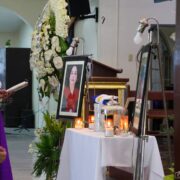Token tax relief

The mind-boggling corruption in the government’s infrastructure projects has not only triggered public outrage—it has also led to calls for some form of relief for taxpayers whose hard-earned contributions to public coffers have been pocketed by corrupt officials and private contractors.
Thus before President Marcos flew to Kuala Lumpur, Malaysia for the 47th Association of Southeast Asian Nations Summit, the Department of Finance (DOF) and the Bureau of Internal Revenue proposed an increase in the ceilings for tax-exempt benefits of public and private sector employees that they said would “definitely make a significant difference for our workers.”
Under the proposal, the ceiling for nontaxable annual medical assistance will be raised to P12,000 from P10,000; laundry allowance from P300 to P400 a month; Christmas or anniversary incentives from P5,000 to P6,000, rice subsidies to P2,500 from P2,000 and annual uniform and clothing allowance from P7,000 to P8,000, among others.
The increase in the nontaxable allowances and benefits was supposed to make up for “inflation and rising living costs and enhance competitiveness across sectors, while maintaining prudent fiscal management,” the DOF said in a statement.
Hardly enough
Mr. Marcos added in his predeparture speech that these changes “are not just about numbers. They are about fairness and dignity in the workplace.” But even with the best of intentions, the proposal has been received with more sneers than cheers.
After all, if squared against the DOF’s own estimates that the ghost flood control projects of the Department of Public Works and Highways has already cost the economy as much as P118.5 billion from 2023 to 2025 and wiped out the 266,000 jobs that would have been created by these programs, these are hardly enough to make even a tiny bit of a difference.
For one, the proposed package of incentives will just benefit those workers that have these incentives in the first place, therefore will not apply to the greater number of employees who are accorded the bare minimum benefits prescribed by law, if at all.
Self-employed, professionals, and informal workers who likewise have no choice but to pay value added tax (VAT) on their consumption or whose income has been reduced because of withholding taxes will likewise not benefit from the proposed increase in the ceiling for exemptions.
Most heavily taxed
Cardinal Pablo Virgilio David, in a social media post, shared a list of 15 different taxes that Filipinos have to pay. “When you add it all up—every payslip deduction, every fuel refill, every purchase at the grocery, every property tax bill—it’s clear that Filipinos are among the most heavily taxed people in Asia. So the question is: Are we getting our taxpayer money’s worth in terms of public services—roads, hospitals, schools, flood control, disaster protection, etc.?”
Some quarters had already lobbied for an income tax holiday, even for just a month, as well as a cut in VAT if only to get back some of the money from taxpayers’ pockets that have now been found to have financed the extravagant lifestyles of unscrupulous individuals who had no qualms about stealing from the government and the Filipino public.
The DOF was quick, however, to dash hopes of the tax breaks that many angry Filipinos are calling for, on grounds that this medicine will be worse than the disease because of the outsize impact on government services and programs.
If that is indeed true, and that the DOF is not just hyping the potential damage just to keep money rolling in, then the Marcos administration should extract every ounce of its creative juices to give the majority of Filipinos immediate and significant assistance, not just the few.
Stop-gap measures
A welcome move is the order for the Department of Trade and Industry to freeze the prices of basic goods, including rice until the end of the year, as the peak Christmas buying season nears. The price freeze will apply to commonly purchased everyday items such as canned sardines, canned meats, milk, bottled water, instant noodles, bread, salt, soy sauce, fish sauce, vinegar, and even candles.
The Marcos administration, however, should not stop at these stop-gap measures that are expected to appease outraged citizens and instead go to the root of the corruption problem, for instance by delivering on its promise to ensure that there will be no more ghost, substandard, or unnecessary projects in the succeeding years, starting with the 2026 budget.
As said in the latest and so far most biting statement yet issued Sunday by the country’s largest business organizations and trade unions, “the Filipino people are no longer just watching,” but instead are clamoring for Mr. Marcos to confront what it described as “the largest and most brazen corruption scandal in our nation’s history.”
Mr. Marcos and his team should indeed take “bold, concrete actions” now, as people’s patience is fast running out.

















